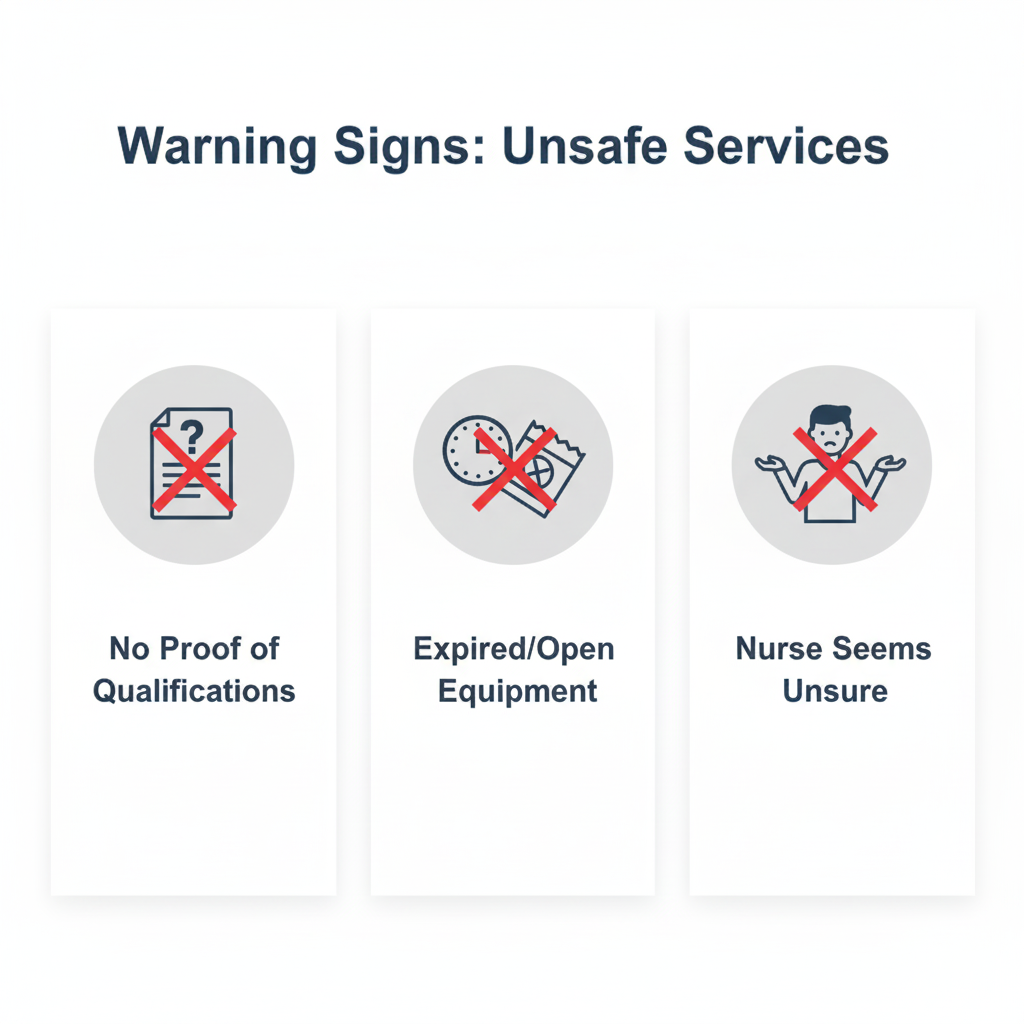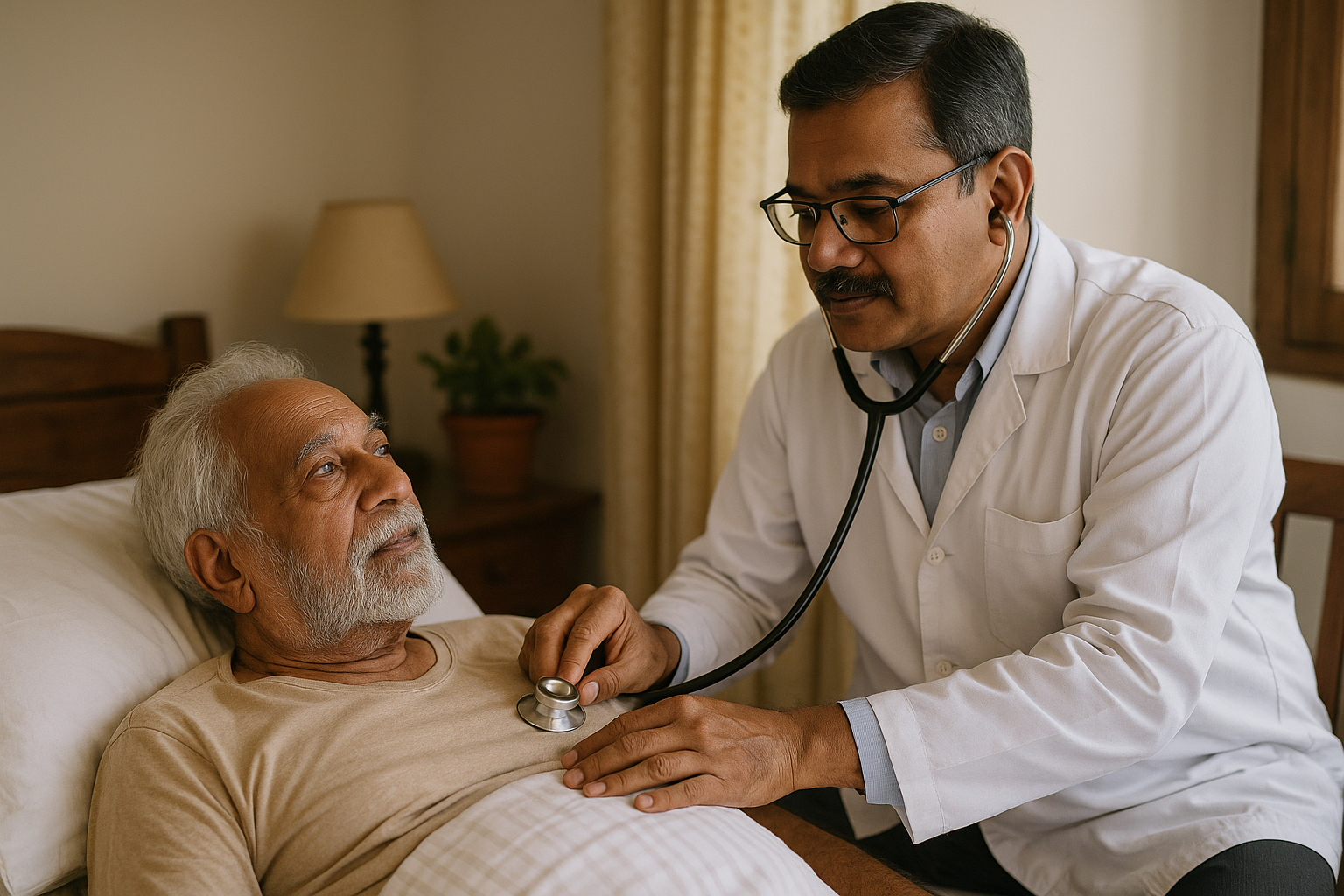Getting vaccinated at home is now possible in many parts of India. Families can schedule a nurse to come to their door, making health protection easier and less stressful. Is it safe? What does it cost? Who should consider home vaccination? This guide answers these important questions and explains what to expect when choosing trusted providers like Dr. Morepen Home. We look closely at safety, trained staff, prices, and the steps for smooth vaccination right at home.
Safety and Expertise in Home Vaccination
Why Expert Supervision Matters
Only trained nurses or doctors should give vaccines. A qualified professional checks your medical background and allergies before any vaccine is given. This lowers the chance of problems. Home vaccination services make sure every step is done carefully and all rules are followed.
Qualifying Pediatricians and Nurses: What to Check
It’s important to ask if the nurse or doctor is registered. Look for these things:
- A certificate from a nursing or medical council
- Experience in giving shots at home
- Training in safety and handling emergencies and any side effects
Trust builds when families see that the nurse is calm, listens well, and explains the process.

Credentials and Training for Home Immunisation Providers
Most companies don’t just hire anyone. They train their nurses and doctors on storing vaccines, handling emergencies, and keeping everything clean. They make sure their staff learn about new health rules and follow them.
Red Flags: How to Identify Unsafe Services
Watch out for providers who:
- Don’t show proof of qualifications
- Use expired or open equipments
- Skip paperwork or questions before vaccination
- Seem unsure about what they’re doing
If something doesn’t feel right, don’t continue.

Oversight and Legal Compliance in Home Healthcare
A responsible home vaccination service follows the rules set by health authorities. They check for updates to government health guidelines and apply them in every visit.
Home Vaccination Protocols: Step-by-Step Procedure
Essential Safety Protocols Before Arrival
Clear some space in your home for the process. Have records ready, along with the doctor’s prescription and allergy details. Confirm the name and timing of the nurse before the visit.

Sanitisation and Infection Control Measures
Nurses wash their hands, use fresh gloves, and wear masks. They clean the area where the vaccine will be given. Vaccines are stored in cool boxes to keep them safe until used. All tools, including syringes, are new and packed.
Documentation & Informed Consent
Before starting, the nurse explains what will happen and possible side effects. After you say yes, the nurse records this and fills out a vaccine card (or updates it online). This card is important for your future records.

Storage, Handling, and Temperature Management of Vaccines
Vaccines must be kept at the right temperature from the pharmacy to your home. Nurses use cool bags with thermometers so vaccines do not get spoiled. Only new, sealed vials are used. This is checked carefully for every patient.
Protocols for Vaccine Administration and Observation
Once the shot is given, the nurse waits about 30 minutes to check for any adverse reaction. You’ll learn how to spot common side effects, like a sore arm or mild fever, and what to do if they appear. You’ll also get a phone number to call in case something feels wrong later.
Cost Breakdown: Home Vaccination in India
Average Price Range by Vaccine Type and Brand
Costs depend on which vaccine you get and where you live. Here is a simple price table:
Cost Comparison: Public vs Private Sector
Home vaccination from private providers usually costs more than a government clinic, but it is more comfortable and removes the need for travel and waiting.
Factors Influencing Total Expense
- City or town location
- Number of shots needed
- Emergency or short-notice bookings
- Insurance availability
Key Precautions Before, During, and After Home Vaccination
Assessing Eligibility (Health and Contraindications)
The nurse or doctor will make sure the person getting vaccinated is not sick or allergic to the medicine. They may also check age, recent health problems, or if a woman is pregnant before giving certain shots.

Precautionary Measures During Administration
- Nurse wears protective gear
- Nurse is prepared with emergency medicine for allergies
Managing Side Effects and Adverse Reactions
You may feel some soreness or tiredness after the shot. Fever can happen but often goes away quickly. Rarely, a strong allergic reaction can occur. Emergency plans are in place, and you should know who to call right away.
Post-vaccination Monitoring: What to Expect
Stay in the same place for half an hour after the shot so the nurse can watch for problems. Rest is usually all that’s needed afterward.
Emergency Response: Handling Severe Reactions at Home
All nurses carry medication like epinephrine for treating strong reactions. Keep their contact information and know when to call for help.
Frequently Asked Questions (FAQ) About Home Vaccination
1. How do I book a home vaccination?
To schedule home vaccination through providers like Dr. Morepen Home, choose the vaccine type on their website, upload a doctor’s prescription (or request one if needed), pick an available slot, and confirm your appointment. The team will assign a trained nurse to visit your home at the scheduled time.
2. Is a doctor’s prescription mandatory?
Yes, a valid prescription from a registered doctor is required for all home vaccination services. Most providers will assist with arranging an online consult for those who need a new prescription.
3. What vaccines can be given at home?
Common vaccines available for home service include Influenza, Shingles, HPV, Pneumococcal, and H1N1, among others.
4. What does it cost to get vaccinated at home?
The total price depends on vaccine type, dosage, and location. Expect to pay between ₹1,200-₹4,500 for the vaccine itself, plus an additional home visit fee from ₹400-₹600. Some providers will give an exact quote after booking.
5. Who is eligible for home vaccination?
Home vaccination is ideal for children, elderly people, individuals with chronic illnesses, and anyone who finds travel challenging.
.png)



.png)
.png)
.png)
.png)
.png)
.png)
.png)

.png)
.png)
.png)

.png)
.png)
.png)
.png)
.png)
.png)

.png)
.png)

.png)
.png)
.png)

.png)

.png)


.png)







